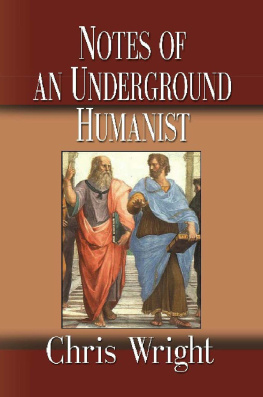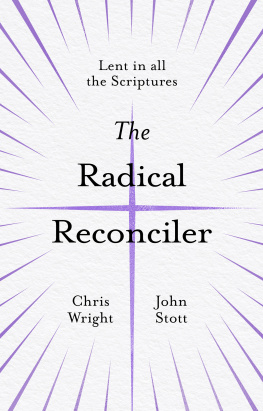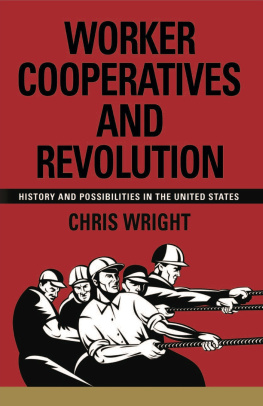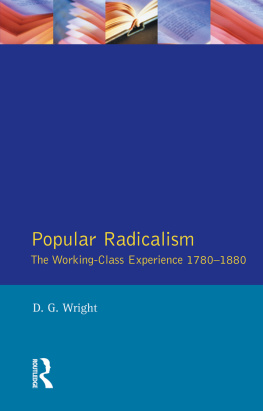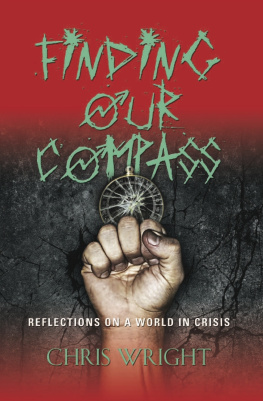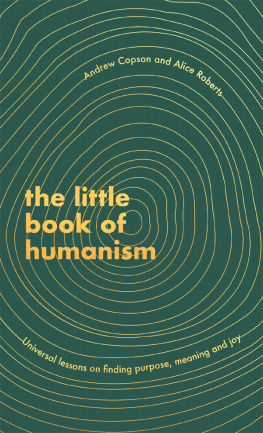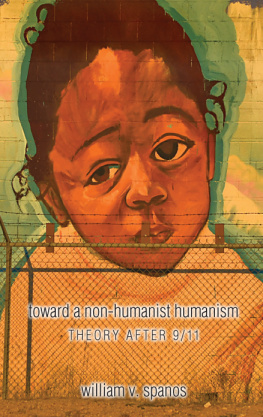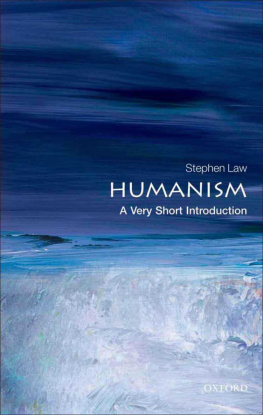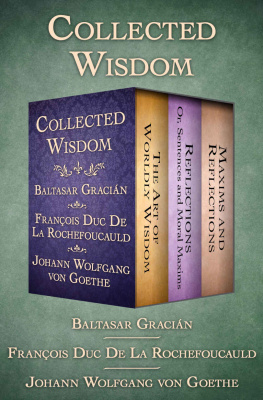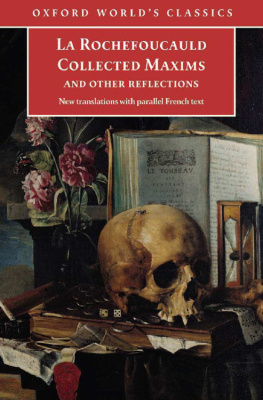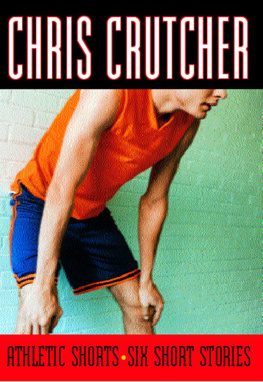Chris Wright - Notes of an Underground Humanist
Here you can read online Chris Wright - Notes of an Underground Humanist full text of the book (entire story) in english for free. Download pdf and epub, get meaning, cover and reviews about this ebook. year: 2009, publisher: Booklocker.com, Inc., genre: Religion. Description of the work, (preface) as well as reviews are available. Best literature library LitArk.com created for fans of good reading and offers a wide selection of genres:
Romance novel
Science fiction
Adventure
Detective
Science
History
Home and family
Prose
Art
Politics
Computer
Non-fiction
Religion
Business
Children
Humor
Choose a favorite category and find really read worthwhile books. Enjoy immersion in the world of imagination, feel the emotions of the characters or learn something new for yourself, make an fascinating discovery.
- Book:Notes of an Underground Humanist
- Author:
- Publisher:Booklocker.com, Inc.
- Genre:
- Year:2009
- Rating:5 / 5
- Favourites:Add to favourites
- Your mark:
- 100
- 1
- 2
- 3
- 4
- 5
Notes of an Underground Humanist: summary, description and annotation
We offer to read an annotation, description, summary or preface (depends on what the author of the book "Notes of an Underground Humanist" wrote himself). If you haven't found the necessary information about the book — write in the comments, we will try to find it.
Notes of an Underground Humanist — read online for free the complete book (whole text) full work
Below is the text of the book, divided by pages. System saving the place of the last page read, allows you to conveniently read the book "Notes of an Underground Humanist" online for free, without having to search again every time where you left off. Put a bookmark, and you can go to the page where you finished reading at any time.
Font size:
Interval:
Bookmark:
I wanted to write a book that would serve as a wake-up call to the world, a book that would lay bare the absurdities and hypocrisies of our civilization. Sort of in the manner of Nietzsche. Writing it was a delight. All the invective, the glib reflections on human stupidity and conformism, the epigrams on religion and politics and women. Periodically I wrote substantive analyses of society and psychology, delved into philosophy, history, and literature. On the surface the book was a sprawling mess, but in its essence it was to be a dialectically articulated artistic whole.
Basically I was striving for greatness. I wanted to catapult myself into history by resurrecting the spirit of Marx and Nietzsche. These pusillanimous times, I told myself, demanded nothing less. You see, for a whilewhen I was still very youngI was preoccupied with the thought of my genius. Or lack of it. I wasnt sure that life was worth living unless I could achieve genius.
Mediocrity was the morass I was constantly clawing out of. I had to have potential, I just had to. I did have potential, in factI was the next [ insert famous name here ]no, no, I wasnt , I was just a hack, a talentless impostorand yet, I was obviously so different from everyone!surely I had the potential to become a genius, at least in the public eye (for I knew even then on some level that the idea of genius or greatness is dishonest and empty)etc. I was neurotic, riddled with doubts and ambitions and self-contradictions, self conscious to the point of doubting my self-consciousness. I saw
I have absorbed the trends of my culture and hover between conflicting worldviews. I recognize the truth in every philosophy from Marxism to psychoanalysis, from Hegelianism to poststructuralism; I recognize the value of every ethical position from Christian morality to nihilism; I have sympathies for every political ideal from Chomskys anarchism to Schumpeters democratic elitism. I cheer the march of science even as I fear it. I support globalization even as it horrifies me. I am a mess of contradictions. ....My faith in the power of reason is totally anachronistic, and even contradictory with myself.
I am the bastard child of a union between the Enlightenment and Existentialismthe Masculine and the Feminine. If I start analyzing myself, though, Ill never stop, so lets just say I had a deep need to be affirmed by myself and others, and I overcompensated for a lack of recognition by creating in my own mind a potential myth of myself. I knew I was overcompensating even as I did it, and I knew how ridiculous my self-absorption was, but, perversely, I interpreted this knowledge as confirming the truth of my delusions: if my self awareness was so keen as to see through itselfto diagnose itselfwell then, I must indeed be pretty special! I must have
So I didnt take this stuff too seriouslyalthough, of course, on another level I did. But the point Im making is that despite all my torments I remained enough of an idealist to think I could have an impact on society by writing a book. Luckily I came to my senses. Books are not dead, not yet, but their history seems to have passed its zenith. There are more books now than ever before, but as their numbers increase their influence seems to decline. They become less relevant, less respected.
Less culturally central. Their place is taken by movies, computers, the internet, television, magazines, video games, which, unlike books, serve to atomize people and attenuate culture itself. American culture is defined more and more by the negation of culture, namely interpersonal fragmentation, immediate gratification, the fetishizing of technology, bureaucratic routinization, universal commodification. Broadly speaking, in short, social life is too atomistic, too materialistic for anything esoteric to really matter. You disagree? Look at the state of contemporary literature. S. S.
Naipaul, surely an authority on the subject, has said that the novel is dead, and Philip Roth thinks its dying. (T. S. Eliot even said it had ended with Flaubert and James.) Fiction can no longer be called very culturally relevant. The first thing to go
There is something inauthentic for our time, wrote Lionel Trilling in 1969, about being held spellbound, momentarily forgetful of oneself, concerned with the fate of a person [namely, the main character of the narrative] who is not oneself but who also, by reason of the spell that is being cast, is oneself, his conduct and his destiny bearing upon the readers own. By what right, we are now inclined to ask, does the narrator exercise authority over that other person, let alone over the reader: by what right does he arrange the confusion between the two and presume to have counsel to give? In retrospect, the modern contempt for narrative necessarily prefigured a contempt for fiction, given that the essence of fiction throughout most of history has been narrative. Ergo: fiction itself has come to seem inauthentic and somehow frivolous to most people, though they may still read a novel now and then as a momentary diversion. Poetry is in the same position. Its everywhere, like fiction, but there is a macrocosmic sense of Who cares anymore? Or look at the state of theory. Philosophy, psychology, sociology, economics.
Far from being very original or ambitious, they often are not even readable anymore! Lionel Trilling, Sincerity and Authenticity (Cambridge: Harvard University Press, 1971), p. 135. I cannot refrain from saying that this little book is remarkable. It is lucid, a pleasure to read, yet challengingthought provoking as few books are.
If from one perspective academia appears comical or superfluous, that isnt entirely the fault of academics: its because the life of the mind is less culturally valued now than it seems to have been long ago. In a moment of sadness once I wrote this: I cant imagine that the overripeness of our culture doesnt make every esoteric project otiose. I cant fathom the relevance anymore of art and intellectual matters. Philosophy, let us admit, is in its yellow leaf; this is uncontroversial, though painful for me, given that philosophy is, was, or would have been my vocation. Psychology and the social sciences dont fare much better, given the imperative of specialization as well as the publics apathy. Literature is passing away, losing its powers to engage societys imagination and tap the vein of rebellionor (at any rate) discontent.
Font size:
Interval:
Bookmark:
Similar books «Notes of an Underground Humanist»
Look at similar books to Notes of an Underground Humanist. We have selected literature similar in name and meaning in the hope of providing readers with more options to find new, interesting, not yet read works.
Discussion, reviews of the book Notes of an Underground Humanist and just readers' own opinions. Leave your comments, write what you think about the work, its meaning or the main characters. Specify what exactly you liked and what you didn't like, and why you think so.

